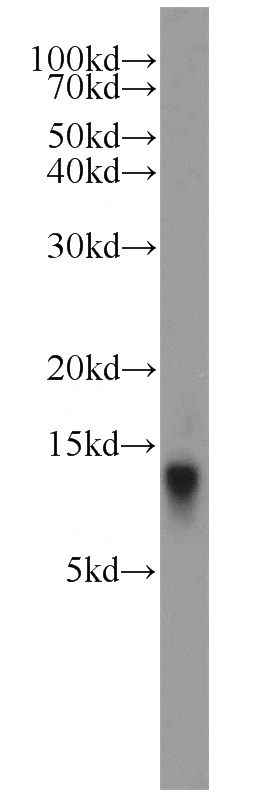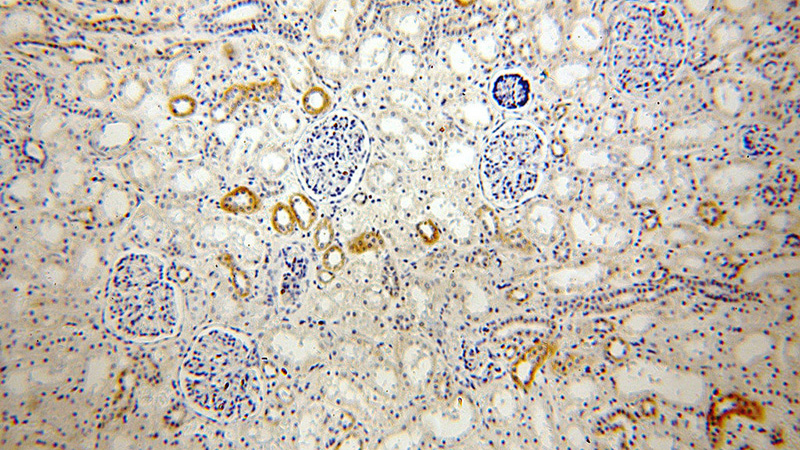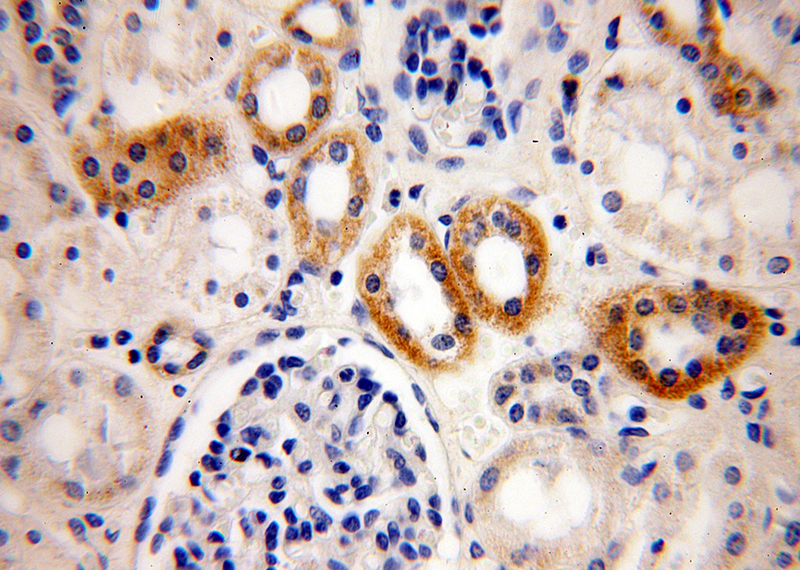-
Product Name
ATP5L antibody
- Documents
-
Description
ATP5L Rabbit Polyclonal antibody. Positive WB detected in mouse liver tissue, HeLa cells, human brain tissue, human skeletal muscle tissue. Positive IHC detected in human kidney tissue, human hepat℃irrhosis tissue. Observed molecular weight by Western-blot: 11 kDa
-
Tested applications
ELISA, WB, IHC
-
Species reactivity
Human,Mouse,Rat; other species not tested.
-
Alternative names
ATP5JG antibody; ATP5L antibody; ATPase subunit g antibody
-
Isotype
Rabbit IgG
-
Preparation
This antibody was obtained by immunization of ATP5L recombinant protein (Accession Number: NM_006476). Purification method: Antigen affinity purified.
-
Clonality
Polyclonal
-
Formulation
PBS with 0.02% sodium azide and 50% glycerol pH 7.3.
-
Storage instructions
Store at -20℃. DO NOT ALIQUOT
-
Applications
Recommended Dilution:
WB: 1:500-1:5000
IHC: 1:20-1:200
-
Validations

mouse liver tissue were subjected to SDS PAGE followed by western blot with Catalog No:108300(ATP5L antibody) at dilution of 1:800

Immunohistochemical of paraffin-embedded human kidney using Catalog No:108300(ATP5L antibody) at dilution of 1:100 (under 10x lens)

Immunohistochemical of paraffin-embedded human kidney using Catalog No:108300(ATP5L antibody) at dilution of 1:100 (under 40x lens)
-
Background
Mitochondrial membrane ATP synthase (F1-Fo ATP synthase or Complex V) produces ATP from ADP in the presence of a proton gradient across the membrane which is generated by electron transport complexes of the respiratory chain. It is composed of the soluble catalytic core, F1, and the membrane-spanning component and Fo, which comprises the proton channel. The Fo seems to have nine subunits (a, b, c, d, e, f, g, F6 and 8). ATP5L gene encodes ATP synthase subunit g of the Fo complex.
-
References
- Sun D, Cheng Y, Zhou D. Quantitative proteome of medulla oblongata in spontaneously hypertensive rats. Journal of proteome research. 12(1):390-5. 2013.
Related Products / Services
Please note: All products are "FOR RESEARCH USE ONLY AND ARE NOT INTENDED FOR DIAGNOSTIC OR THERAPEUTIC USE"
